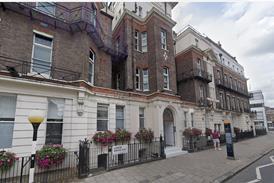The City of London Law Society has launched a strident defence of law firms representing Russian clients, saying that ‘the fact that Putin ignores the rule of law does not mean that we should follow his example’.
Russia’s invasion of Ukraine has led to increasing pressure on lawyers representing Russian businesses and individuals, with ‘London law firms’ blamed by foreign secretary Liz Truss for delaying sanctions and Conservative MP Bob Seely criticising ‘amoral lawyers’ in parliament.
Many top firms – including all five of the magic circle – have announced reviews of their existing work for Russian clients, while international firm Osborne Clarke said it will not take on new clients which are ‘owned by Russian or Belarusian individuals, corporations or by their governments’.
However, the City of London Law Society’s chairman Edward Sparrow emphasised the importance of the right to legal representation under the rule of law, which he said ‘requires that everyone, however unpopular they or their cause might be, has access to a lawyer and to our independent courts’.
Sparrow added: ‘The UK government will take great care to ensure not only that any sanctions achieve their intended purpose but that they comply with the law and are enforceable in the courts.
‘The rule of law demands that those facing those sanctions should have access to legal advice and the courts to test their legality. The fact that Putin ignores the rule of law does not mean that we should follow his example.’
His intervention echoes the position of the Law Society, which has supported firms representing Russian clients and in particular those working to ensure sanctions imposed by the UK government are lawful.
Society president I. Stephanie Boyce previously said: ‘It’s the job of solicitors to represent their clients, whoever they may be, so that the courts act fairly. This is how the public can be confident they live in a country that respects the rule of law – unlike Putin’s tyrannical regime.
‘Solicitors are highly regulated and are not allowed to bring spurious objections to processes – if they challenge the government’s actions, it’s because they think the government is at risk of breaking its own rules.’
This article is now closed for comment.



























22 Readers' comments